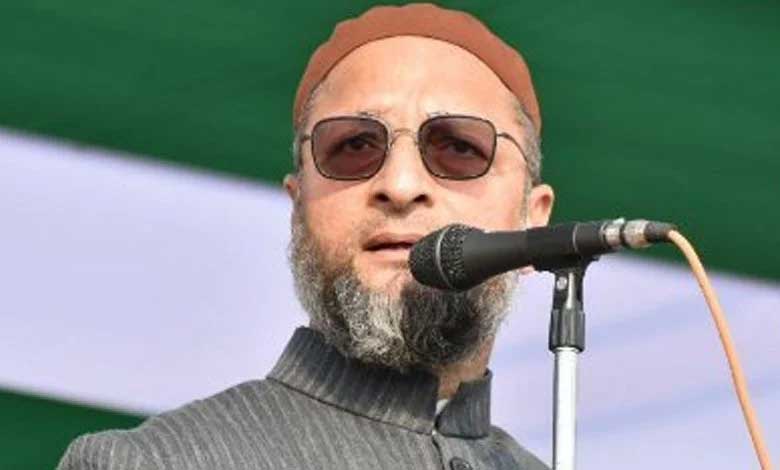Hyderabad News | Asaduddin Owaisi Criticizes Opposition for Their Failure to Establish Educational Institutions: Video
In a recent address, Barrister Asaduddin Owaisi, the prominent leader of the All India Majlis-e-Ittehad-ul-Muslimeen (AIMIM), launched a scathing critique of the opposition parties, accusing them of lacking the courage and capability to establish educational institutions.

Hyderabad: In a recent address, Barrister Asaduddin Owaisi, the prominent leader of the All India Majlis-e-Ittehad-ul-Muslimeen (AIMIM), launched a scathing critique of the opposition parties, accusing them of lacking the courage and capability to establish educational institutions. Owaisi’s remarks were directed at those who have been critical of the AIMIM’s achievements and initiatives, particularly in the realm of education.
Speaking at a public gathering, Owaisi highlighted the contrast between the opposition’s criticisms and their own track record in the field of education. “The opposition parties lack the fortitude to establish educational institutions. They criticize us, but they cannot even set up a single school,” Owaisi stated, emphasizing the discrepancy between their critiques and their own contributions to education.
Owaisi’s comments were made in the context of ongoing debates and discussions about the role of political parties in advancing educational infrastructure. He pointed out that while opposition parties have been vocal in their criticism of the AIMIM, they have failed to demonstrate tangible results in terms of educational development. “Those who cannot even put up a single signboard for a school dare to point fingers at us. They should first focus on their own shortcomings before criticizing others,” Owaisi asserted.
The AIMIM leader’s remarks underscore the party’s commitment to educational advancement and its efforts to address the educational needs of underserved communities. Owaisi’s speech reflects a broader theme of accountability and performance, challenging the opposition to match their words with actions.
The criticism of the opposition comes at a time when educational issues are a focal point in political discourse. The establishment of schools and other educational institutions is a key concern for many communities, and political parties are often judged based on their contributions to this vital sector. Owaisi’s statements are likely to resonate with supporters who view education as a critical area of development and are keen to see tangible improvements in this field.
Owaisi’s comments also highlight the political dynamics surrounding the provision of educational services. By contrasting his party’s achievements with the perceived failures of the opposition, Owaisi aims to position the AIMIM as a more effective advocate for educational development. The remarks serve to reinforce the party’s image as a proactive and results-oriented organization, committed to addressing the educational needs of its constituents.
As political debates continue, the issue of educational development remains central to discussions about party performance and accountability. Owaisi’s critique of the opposition reflects a broader conversation about the role of political leadership in advancing education and meeting the needs of communities.
